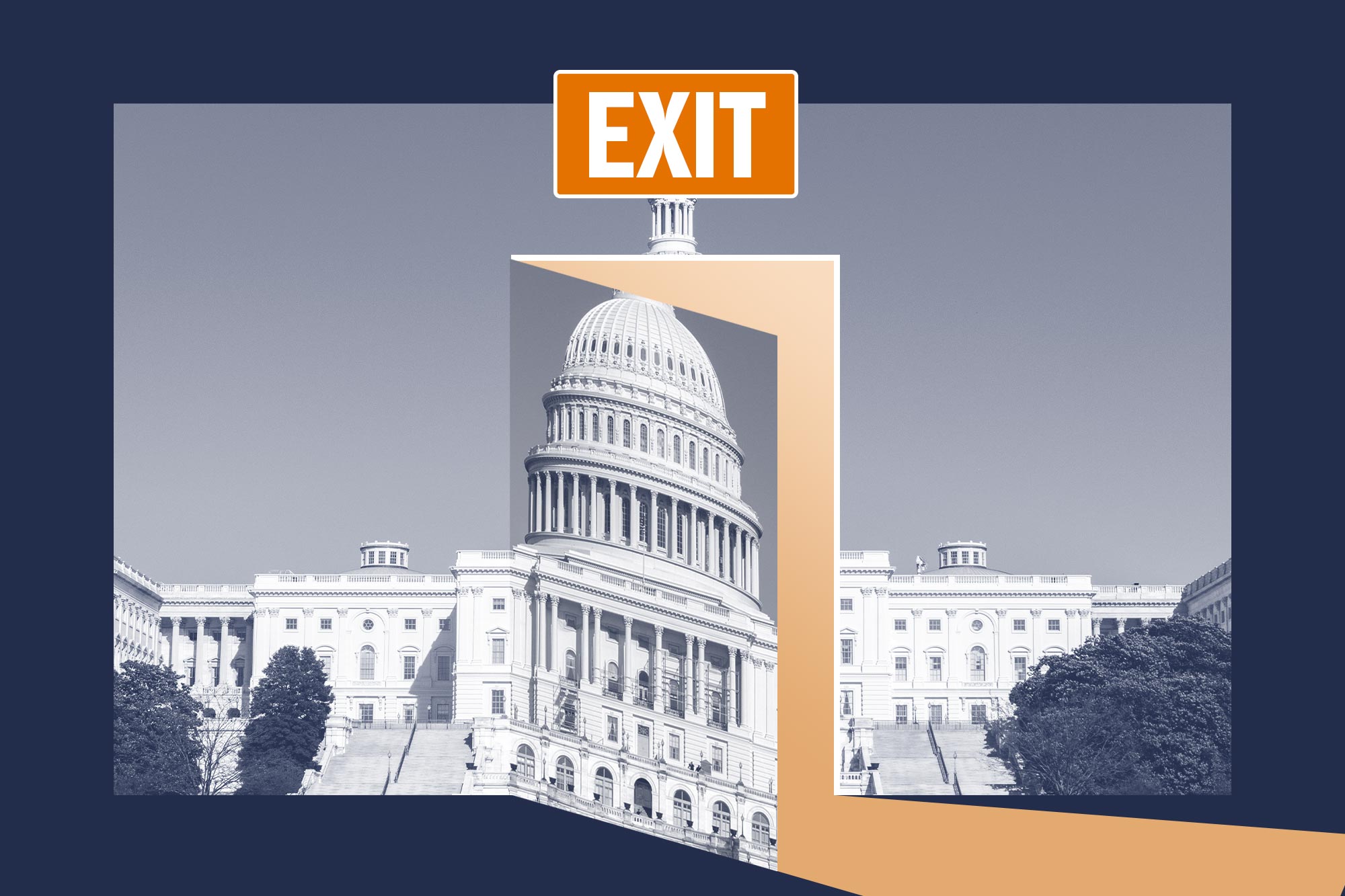After 40 years, he’s moving on.
U.S. Senate Minority Leader Mitch McConnell said he possesses “one of life’s most underappreciated talents” and he plans to use it in November.
McConnell announced on Wednesday, he will step down from his leadership position in the Republican Party after the general election but will continue to serve as a senator until his current term expires in January 2027.
“To serve Kentucky in the Senate has been the honor of my life. To lead my Republican colleagues has been my highest privilege,” McConnell said from the Senate floor. “But one of life’s most underappreciated talents is to know when it’s time to move on to life’s next chapter.”
McConnell, 82, served as the Senate Majority Leader from 2015 to 2021 when the Republican Party held a majority of seats. Since 2021, he’s been Minority Leader as Democrats have the majority.
To get insight into McConnell’s exit from party leadership, UVA Today reached out to Kyle Kondik, director of communications for the UVA Center for Politics and managing editor of Sabato’s Crystal Ball, the center’s online newsletter.
Q. McConnell has been in the driver’s seat for a long time but has had some medical issues as of late and a falling out with other Republicans who are strong Trump supporters. Any guess as to why he made his announcement now?
A. Only McConnell knows exactly why he did this now, but Donald Trump is headed toward becoming the presumptive nominee of the Republican Party, a crowning that is likely just weeks away, as opposed to months.
Trump and McConnell have a complicated and often antagonistic relationship, although McConnell was a key enabler of Trump’s third presidential run. Had McConnell backed conviction in Trump’s second impeachment, he very well could have brought along a sufficient number of Republicans to convict Trump.
As it was, several voted for conviction anyway, but not nearly enough to get to the requisite two-thirds of the Senate. Had Trump been convicted, that would have led to a subsequent Senate vote where, by a simple majority, the Senate could have barred Trump from running for office again.

Kyle Kondik, director of communications for the UVA Center for Politics, said McConnell’s successor could be one of “three Johns,” current senators, all from Western states. (Contributed photo)
Perhaps Trump could have gotten around the prohibition through the courts, but the bottom line is that McConnell had the power to try to prevent the party from being able to nominate Trump again, and he did not take it.
Symbolically, the party has once again chosen a leader who is different from McConnell in important ways, particularly on foreign policy. Maybe it was just time for McConnell to bow to that reality and leave the scene.
He may also have had trouble remaining a leader in the new Congress, and his health may very well be a factor, too.
Q. Does McConnell’s leaving Congress also leave a power vacuum in the GOP in the Senate? Any guesses as to who his likely successor will be?
A. The race to be McConnell’s successor has generally focused on the “three Johns” – Sens. John Barrasso of Wyoming, John Cornyn of Texas and John Thune of South Dakota. Thune has always struck me as the most natural successor to McConnell. But the GOP is not as hierarchical as it used to be and I could imagine a wild card candidate or two trying to jump the line.
Q. Should we expect to see a Republican leadership struggle in the Senate similar to the recent GOP battles for Speaker of the House?
A. I doubt it. One key difference is that the Senate doesn’t have a speaker, so it doesn’t have to elect one as effectively the first order of business when the new Congress meets. The next Senate GOP leader won’t have to win a fight on the Senate floor, meaning that this person won’t need nearly unanimous support within the party caucus.
Q. What legacy is McConnell leaving after 17 years of leadership?
A. While McConnell had a very long tenure at the center of the Senate, I suspect his biggest legacy – beyond not backing Trump’s second impeachment – will be his decision to not consider President Barack Obama’s nomination of Merrick Garland to the U.S. Supreme Court vacancy that arose when Antonin Scalia died in early 2016.
This was an escalation in the judicial wars in the Senate, but it was also something McConnell and his Republican Senate majority was legally able to do. The Senate does not have to confirm or even vote on any judicial nominee.
The decision kept the seat open for the new president, Donald Trump, to ultimately fill and it helped build the conservative majority that eventually overturned Roe v. Wade, a majority that McConnell and Republicans cemented when Ruth Bader Ginsburg died just a few months before the 2020 election.
It’s not hard to imagine a future Supreme Court seat going unfilled for years if the president and the Senate are not in partisan alignment. McConnell was known for hardball, and this is the most prominent example of that. Handling the different vacancies in completely different ways – a Senate vacancy shouldn’t be filled in a presidential year unless it should – was hypocritical but also just an understandable exercise of power.
Media Contact
Assistant Editor, UVA Today Office of University Communications
bkm4s@virginia.edu 434-924-3778
Article Information
July 22, 2025






